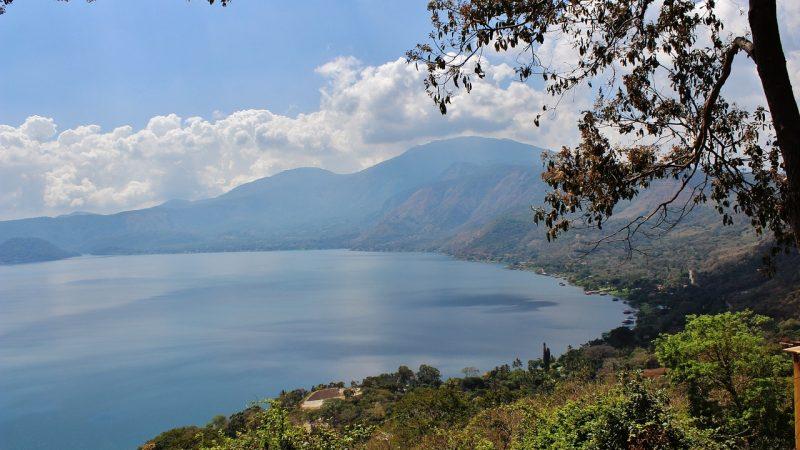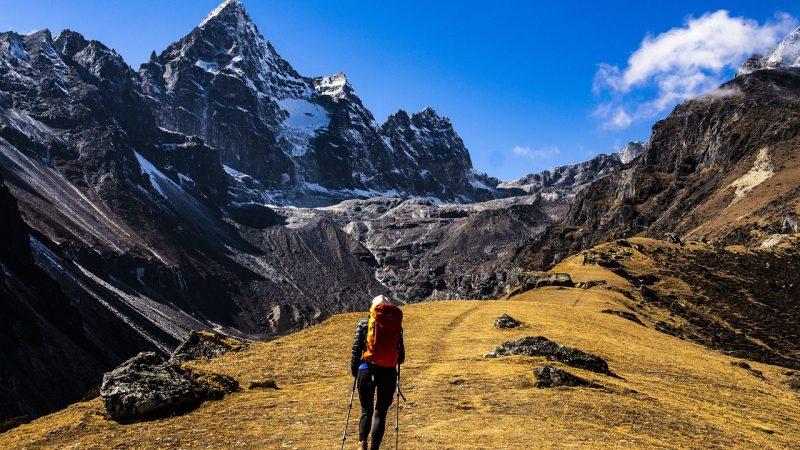How to thrive abroad
While moving abroad and the work and research that goes into it constitutes the greatest deal of work you have ahead of you upon escaping the West, it’s also important not to neglect the second half of your journey (and the rest of your life): thriving abroad.
This ultimately comes down to two things:
- Setting up everything you need
- Being happy and free
Once these two are accomplished, your move to another country can be called a success.
If these factors are missing, you should make it a priority to get them sorted.
Check out my new book, available on Amazon!
Get the bookSetting up everything you need
In Your Parameters for moving abroad I’ve already talked about your specific criteria, parameters you can apply to filter through countries to find one that suits your needs.
Of course, these factors will vary greatly from person to person, but there are a few things that most of us share.
If you want to thrive abroad, I would strongly advise you to get the following sorted:
Get an apartment or house
You need a place to live, and while residing in a hotel definitely has short-term benefits, this is probably not something you want to keep up indefinitely.
I suggest you move around a bit during the first few weeks you’re in your potential new home, hop from hotel to hotel, or AirBnb to AirBnb, until you’ve found a part of the city where you feel like you’ve got everything you want close by.
Then start looking at houses or apartments that are for rent, and get a long term contract.
You can usually get a better deal the longer you rent for, and it can be a source of comfort knowing you’ve got a place to call home for at least the foreseeable future.
If you’d rather not tie yourself down just yet, it’s perfectly fine to just rent from month to month – if possible.
That way, you’ll not run into situations where you discover something nasty about the place you’re renting but you’re stuck there for another year or two.
This is what I did for the first year I lived away from the West.
I just found a decent place and paid monthly.
There were some issues with the place, but as I knew it was only temporary and I’m pretty flexible, I just went with it.
I could have saved about 10% of the rent if I took up a long-term deal, but at that point in time I didn’t feel like committing myself just yet.
Whether you immediately commit or give it a few months to decide, both options are fine, it depends on what you want, what you are comfortable with and how thorough your research beforehand was.
Familiarize yourself
Take the first few weeks of your stay in your new place to get to know your environs.
Humans are creatures of comfort, and most of us like to be aware of where we can get what we want and need relatively quickly and easily.
- Where’s the local supermarket? Can you buy every kind of food or other items you need there? How are you going to get there, and how are you going to get the groceries back to your place?
- If you want one, where’s the gym? Can you go there 24/7, do you need to buy a long-term subscription or can you just pay month by month?
- How, where, and when are you going to pay for your bills?
- Can you get your laundry done yourself, or do you need to hire someone?
- Are you going to drink tap water, bottled water, or buy it in bulk? Where and how will you get it?
- If you get sick, do you know where the nearest hospital or doctor is?
- Do you know what the local equivalent of 9-1-1 is?
- How to prolong your visa? When do you need to do this? Set it up in your calendar so you don’t forget!
- Where can you go to meet prospective romantic and sexual partners? (The internet often works well enough)
These could all be important aspects of your life, and you should make it a priority to know exactly what’s up, and where it is up.
This list is by no means exhaustive, and you might have different needs than I have, so take the time to reflect upon your needs, and make sure you know how they can be met.
Open a local bank account
Withdrawing cash from an ATM using your foreign (from the point of view of the ATM abroad) credit card is rather easy, but also rather costly.
Depending on which provider of credit card you have, you can expect to pay fees of around 5%, probably even more.
That might not sound like much, but let’s say you withdraw $20,000 a year. This means that you just throw away $1,000 on a yearly basis!
This sum can probably cover your monthly rent (and most of the expenses) in many places.
Opening a local bank account can provide you with a much cheaper solution, and all it takes is a trip to the bank.
Now, you do need to do some research, because not every bank will allow foreigners to open an account.
Once you’ve got this sorted, you can bulk-transfer some of your money, say, your yearly budget.
The fee you pay for moving money to a foreign bank is usually not much, in my case it’s around $35 for a sum under $10.000.
So what I do is just transfer around $9990 every few months, and use my local bank account to withdraw it piecemeal.
I’ve calculated that I save about $900 a year just by doing this compared to withdrawing from ATMs through a foreign card, well worth the one-time trip to the bank it cost me years ago.
In addition, it’s a good idea to not keep all your cash in a single country (and definitely not in a Western one), so spreading it around the world is an important part of internationalizing your lifestyle.
Having bank accounts in several different countries is a crucial part of planting your flags and being a citizen of the world.
Get started on your permanent residency
If you are fully committed to staying in whatever country you like, it’s wise to get started on getting (permanent) residence as soon as possible.
Yes, this will probably be a hassle, but it will also be worth it in the long run.
As a resident, you can stay there indefinitely, and you do not need to mess around with visa runs or extensions anymore.
You will feel safer, knowing you cannot be denied access to your new home anymore. This will also save you money.
If you are sure you want to be a permanent resident in a specific country, there is no reason to delay.
Get it done, and you’ll reap the long-term benefits.
Unless of course being a resident means you need to pay taxes, in which case it might be better to get residence in another country where you do not live or derive income from.
Being happy and free
Depending on where you come from, where you move to, how experienced a traveler you are and how thorough you’ve done your research, you might nonetheless experience something called “culture shock”:
“a sense of confusion and uncertainty sometimes with feelings of anxiety that may affect people exposed to an alien culture or environment without adequate preparation”
This describes a shock to your system that you might encounter because you are now living in a perhaps radically different environment than you did for the majority of your life.
Going from uptown New York to a sleep beach town in Thailand will encompass a very different lifestyle, and you will have to take this into account – no matter how pleasant it appears on the surface.
If you’ve done your research and traveled to that country in the past, you might feel like you’ve got a handle on how a permanent relocation is going to play out.
However, taking an exploratory trip and actually moving somewhere for real, permanently, are still two very different beasts.
Some aspects of living abroad only start to manifest themselves after a while (many months, perhaps even years), and small things that might not have bothered you in the beginning might become more and more pronounced and annoying as the years go by.
At some point, they might become too much, and you might not be as free or as happy as you once were.
You can suck it up and deal with it, or you could consider moving again.
Such is the way of things, and if you’re an international citizen, it shouldn’t faze you too much.
Try your best to deal with whatever you need to deal with in your new destination, but if it really irks you and cuts into your happiness, do not hesitate to pack up your bags and move again.
You’ve done it once, so you can certainly do it again.
You definitely should not feel like a failure for “giving up”.
As long as you don’t scamper back to your Western nation, there’s nothing wrong with moving again.
The ultimate goal of escaping the West is finding the long-term happiness and freedom that your collapsing Western nation can no longer provide you with.
There are quite a few countries which are objectively much better than your country of birth, but not all of those will suit you.
Finding a country that will provide you with the most happiness and personal freedom will perhaps not be a “one-and-done” deal.
You might have to try out a few different countries to really connect with one.
Fortunately, if you are self-employed with a location-independent income, you are completely free to travel around the world and sample every flavor this life has to offer.
Check out my new book, available on Amazon!
Get the book



Do you need to live in a city to have cheap, convenient travel options without owning a car?
Nope, you can always drive a bicycle, or walk everywhere. A bit rough if you want to do bulk-grocery shopping, but certainly possible!